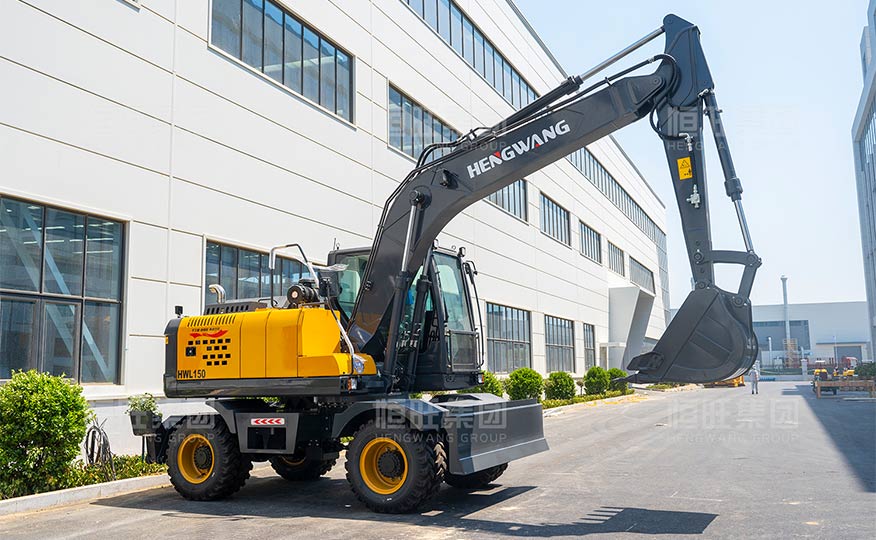In harsh African working conditions, mastering the operation skills of Africa rough terrain wheeled excavators is key to improving efficiency and reducing failures. The following provides practical guides for three typical scenarios, with video tutorials and solutions.
I. Sandy startup skills: Avoid trapping and idling
Problem: Soft sand in deserts easily causes track slipping and engine overload.
Operation points:
Terrain prediction: Clear accumulated sand around the tracks before starting to reduce ground resistance;
Bucket retraction and refueling: First retract the bucket to a semi-high position, slowly increase the throttle to avoid excessive instant torque;
Low gear: Start in 1st gear and gradually accelerate to a stable state.
Fault prevention: Regularly check the track tension of the Africa rough terrain wheeled excavator; for soft terrain, it is recommended to adjust to the tightest state.
II. Ditching skills in rock areas: Protect blades and chassis
Problem: Hard rocks such as granite easily wear buckets, and frequent collisions cause chassis deformation.
Operation points:
Layered excavation: Adopt the "V-shaped cutting method" – first shallowly crush, then dig layer by layer to reduce single impact force;
Angle control: Bucket cutting angle ≤30° to distribute pressure using bucket teeth;
Chassis protection: Install anti-collision guards; keep moving straight during operation to avoid sharp turns of the Africa rough terrain wheeled excavator scraping rock walls.
Fault warning: If abnormal wear of bucket teeth is found, replace them immediately to prevent damage to the Africa rough terrain wheeled excavator.
III. Rainy season maintenance skills: Focus on waterproofing and anti-slip
Problem: Muddy roads easily slip; rain erosion causes short circuits and lubrication failure.
Maintenance points:
Inspection before wading: Clean the air filter to ensure the air intake of the Africa rough terrain wheeled excavator is 20cm above the water surface;
Anti-slip configuration: Install anti-slip chains or switch to wetland-specific tracks to improve traction;
Circuit protection: Wrap electrical connectors with waterproof cloth; dry the cab water in time after shutdown.
Frequently asked questions:
Q: Why does my excavator leak oil more easily in Africa?
A: High temperatures in Africa accelerate seal aging. It is recommended to replace hydraulic oil seals every 500 hours and use high-temperature resistant grease.
IV. CTA and Hengwang advantages
Take action now:
Enter your information, and we will provide you with a free White Paper on Selection and Maintenance of Africa rough terrain wheeled excavators based on your terrain type (desert/mountain/rainy season, etc.).
Why choose Hengwang?
Customized adaptation: Bulldozer-level durability technology is transplanted to wheeled excavators, such as the extra-wide tracks of HWL150, which improve the passability of the Africa rough terrain wheeled excavator in swamps by 40%;
Full-cycle guarantee: Provide 10-year structural warranty and localized spare parts warehouses in Africa, with Africa rough terrain wheeled excavator fault response <4 hours;
Cost optimization: Diesel power system reduces energy consumption by 35% compared to peer electric equipment, and comprehensive operation and maintenance costs are reduced by 20%.
Consult now, and let Hengwang Africa rough terrain wheeled excavator be your "all-round partner" in conquering complex African terrains!

